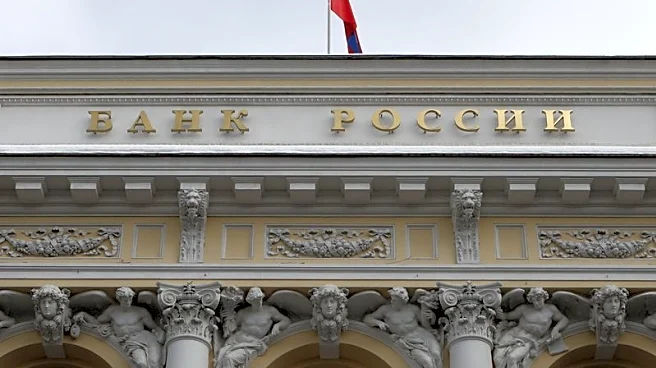What is the story about?
What's Happening?
China's antimonopoly regulator has accused Nvidia, a leading American chip maker, of violating the country's antitrust laws. This announcement follows an investigation initiated by China last December. The State Administration for Market Regulation has stated that the investigation will continue, coinciding with ongoing trade negotiations between China and the United States in Madrid. The U.S. recently added 23 Chinese firms to a list prohibiting them from purchasing American technology due to national security concerns, while China has launched investigations into American suppliers of certain integrated circuits.
Why It's Important?
The accusation against Nvidia highlights the escalating trade tensions between the U.S. and China, particularly in the semiconductor industry. This sector is crucial for both countries, as it underpins technological advancements and economic growth. The ongoing investigation could impact Nvidia's operations and market access in China, a significant market for the company. Additionally, the broader trade conflict may affect global supply chains, leading to increased costs and disruptions for businesses reliant on semiconductor products. Stakeholders in the tech industry, including manufacturers and consumers, may face challenges as the situation develops.
What's Next?
As the investigation continues, Nvidia may need to address the antitrust allegations to maintain its market presence in China. The outcome of the trade negotiations in Madrid could influence future regulatory actions and trade policies between the U.S. and China. Companies in the semiconductor industry will likely monitor these developments closely, as they could affect international trade dynamics and business strategies. Political leaders and industry groups may also engage in discussions to mitigate the impact of these tensions on global markets.
Beyond the Headlines
The antitrust investigation into Nvidia reflects broader geopolitical dynamics, where technology and trade are increasingly intertwined with national security concerns. This situation underscores the importance of regulatory compliance and strategic diplomacy in international business operations. The case may set precedents for how multinational companies navigate complex legal and political landscapes, influencing future mergers and acquisitions in the tech sector.

















